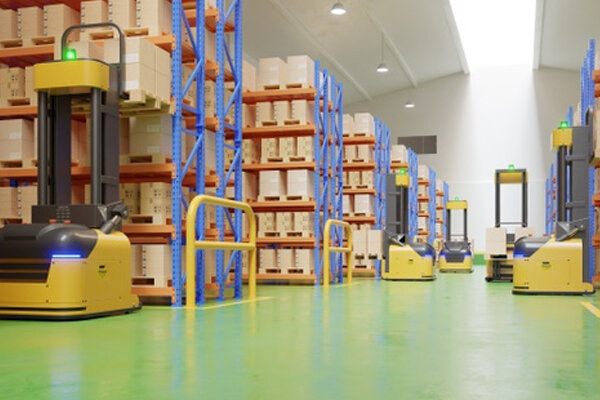Subscribe to The Next-Level Income Show
Are You Thinking Of Investing In Self Storage But Don’t Know Where To Start?
In this episode, Chris brings on Kris Bennett, the Self Storage Managing Partner at PassiveInvesting.com, to talk about why you should consider investing in self storage. Kris discusses the demand for more small storage units and then shares a great view of the pros and cons of self storage and how it compares to multifamily investing. Talking about the elephant in the room, he also provides insights into how the pandemic affects the industry and pushes for more technological integration. As more and more people are downsizing, the self storage industry is growing to become a hot market. Follow along this conversation and learn more on how you can get your hands into the new opportunities it presents.
Watch The Episode Here:
Listen To The Podcast Here:
Why Should You Consider Investing In Self Storage With Kris Bennett
You can get a free copy of our book and new audiobook at NextLevelIncome.com/book. You’re not going to want to miss this episode with Kris Bennett. Kris is a self-storage specialist and he’s going to share with you why self-storage is not only a great investment now and, in the future, and how his group uses demographics and technology to add value, find great deals in this space and share them with investors.
—
We have Kris Bennett of PassiveInvesting.com. Kris has years of real estate experience, spanning self-storage, residential investment, and brokerage. At PassiveInvesting.com, his responsibilities include sourcing self-storage deals and leading due diligence. Kris has been a guest speaker at the North Carolina Self Storage Association and UNC Kenan-Flagler Business School Executive MBA and undergraduate real estate classes. Kris is a graduate of UNC Chapel Hill and the Kenan-Flagler Business School where he served as a fund manager for the school’s real estate investment fund.
—
Kris, welcome to the show.
Thanks, Chris. I’m glad to be here.
I’m excited. I enjoyed catching up a little bit here before the show. We’re coming off the back of The Self Storage Summit here. A phenomenal event. For anyone that missed that or hasn’t heard about you and your part in PassiveInvesting.com, maybe you could share a little bit about your background and how you ended up in the self-storage space.
We’ll go back in time to 2007. I got my real estate license. My first day on the job as a brand new residential real estate broker was August 28th, 2007. That was great foresight. Nobody knew what was coming in 2008. Our real estate class was packed, 150 people or whatever. We’re all going to be rich and go kill it with the Robert Kiyosaki wisdom. 2008 hit. I was working in the foreclosure side of the business, which was both good and bad. I worked with a few investors who could pay cash for deals. If you could buy stuff back then and hold it for the next ten years, you’d be a multimillionaire, but nobody knew. We were all going through a hard time. It was the worst time to be a real estate agent in the past years. We shot ourselves in the foot during that time.
Fast forward, I got tired of the business. I was evicting people and doing all kinds of stuff. It was not fun. I was the boots on the ground kind of guy. I didn’t want to do that any longer. I decided to go to school. I was a bit older. I was in my early 30s. I went to community college here. I live in Charlotte, North Carolina. I ended up transferring to UNC-Chapel Hill. They have a real estate program there that I didn’t know about at the business school when I got to Chapel Hill. Coincidentally, I didn’t want to do anything with real estate. I wanted to do something completely different because I had seen all the bad stuff from real estate and didn’t fully understand investing in the opportunity that presented itself. If I could go back in time, I’ll do things a little bit differently but it’s okay. It works out.
I got to business school. I applied to the real estate fund that they have there. I got to Chapel Hill. I was looking for summer work after my first year there. The only job I could find on the job boards at the school was for a real estate private equity fund based in Chapel Hill. Eller Capital, Daniel Eller. I interned for that summer and then the following summer. I realized, “This guy goes and buys them.” I had no idea what he did. He goes and he buys apartments. He raises capital and does these deals. He was looking at a portfolio of sixteen apartments at the time in the North Carolina area. I was helping him with underwriting. I didn’t know anything about underwriting. I’d never seen so many zeros in the purchase price of a property in my life, it was millions of dollars. I was astounded by what he was doing. That was my first exposure to syndication, raising capital, and buying apartments.
They have a real estate fund at the school and I applied to that and got on as a fund manager. We were taking friends and family money into a fund platform. It was funded number three. At the time, $3.6 million is what we had of LP money. This is real money. High net worth individuals. Friends and family of the business school. It was an honor to be a part of that program and to be a fund manager. We invested in hotels, self-storage, multifamily, and a bunch of other stuff. It was cool to see these deals. We were a small piece. We put in $250,000 on average and these guys are raising ten times that to do a big development or whatever. It was cool to see that.
I worked at a family office up in the Raleigh area. We were tasked with looking for multifamily deals and I couldn’t make the numbers work with a return we’re trying to target. The economy at the time, this is about 2016, things were pretty hot. If you think they’re hot now, they are they, but they were hot then and going up in a sense like a rocket ship. We pivoted to self-storage. I can compare the underwriting of the two and the operation and all this stuff. I was like, “This is a great opportunity in the storage space.” We put together a fund. We raised money on CrowdStreet.com and went out and purchased a good number of self-storage facilities and closed them and completed what we called The Fund One.
I ended up moving back to Charlotte to be closer to friends and family. My wife’s family is in that area. We moved back here. I partnered with some other guys to do some single-family home development and look for self-storage deals. Fast forward, I met my partner, Jon. I kept in contact with Dan Hanford the whole time. From the first meetup that he ever had when he was getting into the business before they owned anything and he even met Brandon and anybody else, he had a meetup in Charlotte. I don’t even know how I connected with him.
I got invited to the first meetup. It was me, Dan, and 3 or 4 other people. I kept going because it made sense to go and connect with people, even though I was interested in storage and not multifamily. He and I have stayed in touch since that time. He contacted us, my other partner, Jon, and said, “We want to do storage. You guys are doing storage. Let’s talk.” We did. It made sense to merge the two companies and we made it under the Passive Investing umbrella and that was in January 2021. That’s where we’re at. That’s my story in a big nutshell.
That’s a good size nutshell. It’s fantastic. One of the things that I like about you, Chris, is you’ve done more than self-storage. You have a view of the market. That’s when we did our first syndication in 2016. It was hot then and it’s gotten a lot hotter. It’s dynamic now with a lot of different things. As somebody who’s seen both pieces, who’s written underwritten both pieces, talk a little bit about some of the similarities and then also the differences between multifamily and self-storage.
Let’s start with the differences because it’s a little bit easier to think of it that way. For example, one is the rents. In apartments, you might rent it, let’s say, for $1,000 per month. It’s 1,000 square feet. It’s $1 per foot in rent, in revenue. In storage, you might have a 10×10 unit that’s 100 square feet. You can rent that for $1 per month as well. In that sense, they’re similar. You might get a closed number in square footage as far as $1 per foot or revenue per foot but the amount you bring in is drastically different. $1,000 versus $100 a month isn’t a very different amount of money.
People sometimes don’t realize that when they’re going from multifamily to storage. That can also be a pro because the prices, in general, for self-storage and the number of units that you can get are less than in multifamily. If you had a $1 million or something like that, you can go buy maybe a $5 million apartment complex or something like that. You might get 20, 30, 40 units. It depends on where it is. If you take that same $1 million and you want to go buy a $5 million project in self-storage, you can probably buy 300 units in self-storage.
The revenue can be similar on a per-foot basis. The actual dollar amount that you make is less in storage as far as total dollars are concerned but you can buy more units with the same amount of equity. Your vacancy risk is a little bit different. If you have those twenty units in multifamily, 2, 3, 4 of those go dark. You’re getting really close to your breakeven point. Now you’ll get in trouble, maybe. Whereas in storage, a 15% occupancy is considered stabilized. Your breakeven point is much less. It could be around 40% to 50% or so. You can lose a lot more of your tenant base in self-storage and be okay versus multifamily.
There are more multifamily deals to look at. If you take Charlotte, for example, you go into Apartments.com. Type in what you’re looking for, 2 or 3 apartments. You’ll find a lot. There are a lot of those. Roughly, there are only plus or minus 400 storage facilities in all of Charlotte in the MSA. That’s a lot less as far as numbers. Trying to find a deal that works and makes sense can be a little bit tricky in the self-storage space. There’s a ton of pros and cons that we can talk about further but those are the big ones that people sometimes don’t realize or think through.
In my book, I talk a lot about the demographic trends that are supporting multifamily, how we’re not building enough units, you have Millennials that are renting in bigger numbers. In the pandemic, if you couldn’t buy, you’re probably going to continue to rent as you save up that downpayment that you might have had to spend. We have Baby Boomers that are selling their homes to unlock their equity, especially in this hot seller’s market and they’re renting. Talk a little bit about the demographic trends that support self-storage.
We’re in a nation that likes to buy stuff. We’re a consumption-driven economy and there’s nothing wrong with that. I like it. It’s fine. I want to have 25 different choices of shampoo when I go to the store. I don’t want two. It’s fine by me. However, we fill up our homes and we realize, “We need more room for whatever it might be, whether it be Christmas decorations. Grandpa passed away, sadly enough, and we need to put his stuff somewhere and I can’t bring myself to get rid of it.” Stuff like that. We put things that we don’t want to get rid of. We have an emotional attachment to those things sometimes.
At the same time, we like to move. You’re talking about people who are possibly downsizing. I live in a 2,700 square foot house and I think about my kids and they grow up and all that. Am I going to want to live here when I’m older? Not really. I’m going to want to downsize my home as you had mentioned. There are some things I don’t want to get rid of. I need to put it somewhere in storage. That’s where storage comes into play. We bought this house and it was a former model home and it came fully furnished. I have some bookshelves behind me and these were here when I moved in. We could’ve packed our luggage and moved into the house.

Investing In Self Storage: The actual dollar amount that you make is less in storage than in multifamily as far as total dollars are concerned, but you can buy more units with the same amount of equity.
That’s pretty cool. I like that idea. We finished building our house. The interior designer that my wife worked with bought the furniture. I probably could have bought the original property. I bought it with cash when I was in college.
It’s a lot. We were blessed to have that happen but then there were some pieces of furniture that we’re selling off. For example, one of the rooms upstairs has a nice dresser in it. I looked it up to see how much it costs and it’s about a $1,000 lady’s dresser. Soft-close doors. It’s nice. It weighs 200 pounds. We’re going to sell it. In my mind, I’m like, “I don’t want to sell this. I want to put it in storage. I don’t want to get rid of it.” I think about it, “Why am I going to do that? I don’t want to keep that stuff.” We’re going to sell it.
The point is people think along those lines. If I’m downsizing, if I lost a job, which we see some of that happening with the pandemic. I got friends who are selling their homes and they’re moving into rent temporarily to pay down some debt. They need someplace to put their stuff. I know that sounds crazy but that’s their financial situation. They need a place to put their stuff. That goes into storage as a result. We’re mobile, workforce and economy. Folks like to move and buy stuff. That drives some of the interest in self-storage.
I’m not a big stuff guy. I consider myself more of a minimalist. It drives my wife crazy because every quarter I go through my closet and I donate clothes. She’s like, “You just got that.”
I’m like that.
Ironically, you and I are talking about self-storage but when we were in the DC market, we had a self-storage unit right across the street because there wasn’t a garage space. I’ve always been a cyclist and we keep some things over there. When we were building our house, we use one of the pods, which you’re probably familiar with. It’s a cool thing. I could see that if we had a storage unit, we might have left some stuff in there. Also, depending on how we did it.
If you’re reading this, you’re probably thinking, “I’ve used self-storage. I have a unit right now that I’m using.” It’s interesting. I don’t think this trend is slowing down as people are saying, “I can live and work wherever.” They get to move around. We have people in Asheville renting our Airbnb. They’re coming and staying for a week or so at a time and testing the market to see if they want to live here. They’re doing that all around the country. It’s cool. They’ve sold their house. I talked to a woman, they’re selling their house out West and they’re traveling. What are they going to do with their stuff? They’re going to put it in storage.
It’s got to go into storage.
These are all affluent people that are making these choices. It’s interesting. Kris, you live in Charlotte. You’re talking about the Charlotte MSA. With respect to the number of self-storage facilities there, what markets are you focused on when you’re underwriting deals that you’re looking at?
We’ll look anywhere that’s a good, growing market in selected states. For example, in North Carolina, we’ll look in Charlotte. I’ll look in Winston-Salem Greensboro. I’ll select parts of that area, that submarket. Raleigh, of course. We’re looking in South Carolina, Florida, Texas, Arizona, Colorado, Georgia, and Tennessee. We were looking at a deal out there. Those states, good growing markets within those states.
For example, we’re looking at a deal in Houston, Texas. It doesn’t have to be in the MSA. It doesn’t have to be within Houston. It could be in a nice submarket of Houston and that’s where this deal is located. That’s fine with us as long as there’s growth there, as long as incomes can support storage, of course, and I don’t have to be chasing rents. We closed on one on March 1st, 2021. Average household income, let’s call it close to $100,000 within three miles of that facility. I forgot what the number is exactly but they’re pretty close together.
These are 100% occupied, as far as the units are concerned. We have a ton of boats and RV out there. If you drive out there, you’ll see a $200,000 RV parked there and they’re covered. Another thing that also drives some of the storage is the parking as well. At that location, we don’t chase. Everybody pays on time. They take care of their business. They’re financially strong, of course. Those are the kind of markets we’re looking in. Can we take a facility that’s not doing so well and probably beat the other competitors around us even if it’s not in quite as a desirable submarket or demographic? Yeah, but I would rather put my money in something like what we closed in March. It also means it’s competitive.
I talked to some group, they were wanting to get some input and whatnot. They’re here in Charlotte, on stores. They had some land they’re going to develop and probably do some storage there and that’s great. I said to them, “There’s no new mousetrap in this business.” Nobody has found this golden thing, the fountain of youth when it comes to real estate investing or this anomaly that we’re going to make a ton of money or whatever.
Everybody else is looking in good markets. Everybody else is competing for the same deals for the most part. You have to get creative on the financing and improve on the management side of things. You’re paying a high dollar, in some cases, for some of these locations. They’re competing with REITs in others where they’re looking at those large three-story deals and whatnot. There’s no new mousetrap. We’re looking at some of the markets that the other smart guys are looking in as well and competing against them. That’s where we are.
Just like the deal we closed right before the show aired in Orlando, it’s the relationships that come into it and how you find it. I get that. What characteristics are you looking for in your deals, Kris?
If we can get to at least a minimum of 30,000 to around 40,000 square feet existing, that’s where we want to be. If we can expand that and make it 60,000 total or something like that, that’s great. There’s extra land but it doesn’t have to. We think we can improve on the operations of the facility. Typically, it’s a mom-and-pop. They aren’t doing tenant insurance, they aren’t charging late fees, they aren’t doing admin fees, some of those things. That extra income can make or break a deal sometimes. That including with the debt financing and how that looks. That’s what we try to look for.
We want to be in good markets where there’s population growth. I won’t go to a market or a submarket that’s declined. At the same time, sometimes you might look at a deal and, in one mile, there’s population decline. When I say 1-mile or 3-mile, I mean like as the crow flies a radius around the facility. If I go out to three miles, there’s a population increase and then in one mile, there’s an increase as well. What happened in the one mile? Maybe it was because they didn’t put in new housing. They put in a big retail shopping center or they did something else. Just because it shows a decline in the data, you have to dig in and figure out why is there a decline in the market? Is it because of something like that? Rather than rooftops going in, they put in a retail thing or a distribution warehouse thing or Amazon or whatever. In general, we want to be in population growth with decent incomes and growing around those states I mentioned.
Tons of overlap with what we do on the multifamily side.
We want a diverse economy. We want people moving in and out. We want people coming there. We talked earlier that the movement of people drives some of the demand for self-storage.
I love that. It resonates, especially with some of the investors we work with. They understand that. You talked through some of the areas and how you add value. Talk about technology. I’ve seen some of the self-storage facilities around here and there’s like a kiosk, there’s nobody there. There’s minimal staffing. What are we seeing? How does the pandemic push some of these technological changes?

Investing In Self Storage: With storage, there are always things that can go wrong with technology. It’s not perfect.

Investing In Self Storage: Go find other investors who are doing this thing and buy everything you possibly can.
I would connect with other investors at that time. Sometimes you don’t know what you don’t know. When I was doing real estate, all I saw was the foreclosure side of the business. I remember reading Robert Kiyosaki’s book but that was around 2009 or so. It was a little bit later. I still didn’t quite grasp the concept of investing in rental properties and the opportunity that was in front of me at that time. If I can go back now, I would say, “Go find other investors who are doing this thing and buy everything you possibly can.”
Your story was you living that when you were talking about going to that meetup and meeting Dan. Here we are having this conversation as you guys are now partners. We’re looking at some deals coming up. Kris, thank you so much for being on the show. If people want to get in touch with you, what’s the best way to find out?
You can shoot me an email, Kris@PassiveInvesting.com.
We love Kris’s around here. We appreciate you being on the show. Check out Kris’s upcoming blog on our website if you haven’t been there, NextLevelIncome.com. Thanks for being on.
Thank you, Chris. I appreciate it.
—
I hope you found this episode valuable. I have one more thing to give to you. We have a page for my coaching clients where you can get a free copy of my book, as well as much more from previous guests on the show. Check out NextLevelIncome.com/coaching to get a free copy of my book, audiobook, and much more. I’ll send you a copy of my book and cover all the shipping costs as a thank you for following the show. Also, please like, share, and take 90 seconds to give us a rating on Apple Podcasts.
Important Links:
-
Pros and Cons of Self Storage Investing by Kris Bennett
-
Apple Podcasts – The Next-Level Income Show
About Kris Bennett

Kris brings 14 years of real estate experience to PassiveInvesting.com, spanning self-storage and residential investment and brokerage. At his previous firm, his responsibilities include raising capital, sourcing deals, and leading due diligence. He has advised third-party groups on portfolio acquisitions totaling over fifty million dollars in value. He is a trusted voice in the self-storage space with his podcast The Storage Investor Show.
Kris has presented on the topic of technology in self-storage at the NC Self-Storage Association’s annual conference. He has also been a guest speaker in Executive MBA and Undergraduate classes at UNC’s Kenan-Flagler Business School.
Kris is a graduate of UNC-Chapel Hill and Kenan-Flagler Business School, where he served as a Fund Manager for the school’s private equity real estate fund.
Love the show? Subscribe, rate, review, and share!
Join the Next- Level Income Show Community today:
Tagged: Investing In Self Storage, Real Estate, Storage Units, Multifamily, Real Estate Market, Downsizing, Pandemic, Group 2


Subscribe to The Next-Level Income Show